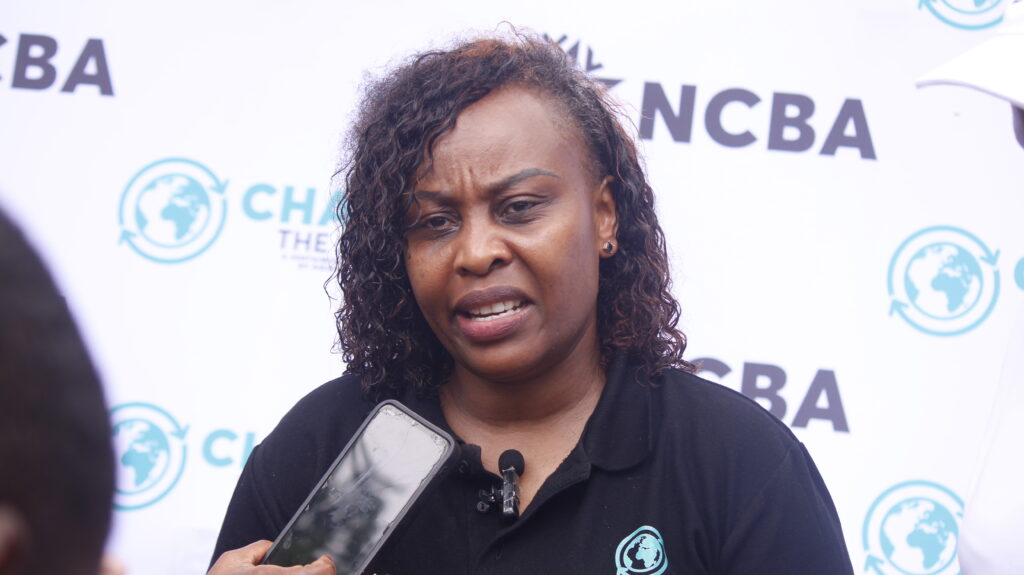By Nuru Salim
Over 3,000 mangrove trees were planted in Chale and tonnes of plastic waste collected along Diani in Kwale County on Wednesday, as NCBA Bank led a high-impact environmental campaign to mark World Environment Day 2025.
The event, held on June 5 at Chale, brought together government agencies, private sector partners, and local communities in a large-scale effort to restore fragile marine ecosystems and curb plastic pollution under this year’s global theme, “Ending Plastic Pollution.”
Spearheaded by NCBA Bank in partnership with the Boreka Group, Kenya Forest Service KFS, the National Environment Management Authority NEMA, the Kwale County Government and members of the community, the initiative marked the third year of collaboration between the financial institution and environmental stakeholders.
The partnership has since planted 180,000 trees across Kwale and Kitui counties, achieving a 75 percent seedling survival rate and generating long-term social and ecological benefits.
In her address, NCBA Group Director of Marketing, Communication and Citizenship, Nelly Wainaina, emphasized the bank’s broader sustainability agenda.
“Plastic pollution remains one of the most pressing environmental threats. At NCBA, we are committed to restoring vital habitats and empowering communities to participate in long-term environmental initiatives,’’ she said.
The mangrove restoration not only enhances carbon sequestration but also protects coastlines from erosion and sustains fisheries vital to local livelihoods.
Esther Mutuma, the founder of the Boreka Group said that despite laws banning single-use plastics, implementation remains a challenge. ‘’If nothing changes, the plastic waste we see now will multiply and last over 400 years.” He added.
The impact of the NCBA-Boreka partnership program has created 392 green jobs, trained over 1,000 farmers in sustainable agroforestry, empowered 35 Boreka staff with ESG knowledge and engaged 27 communities through targeted climate awareness campaigns.
Chale, an ecologically significant area home to mangroves and coral reefs was strategically selected for the event due to its vulnerability to environmental degradation and Diani for its international recognition as a major tourist destination.
In addition to the planting and cleanup, NCBA facilitated interactive sessions with local schools and youth groups to build awareness on the dangers of plastic waste and the ecological value of mangroves.
Experts say mangroves can store over 1,000 tonnes of carbon per hectare in their soil and biomass, making them one of the most effective nature-based climate solutions on Earth.
Their dense root systems trap sediments, reduce coastal erosion and act as natural filters for pollutants. As such, restoring mangroves plays a critical role in achieving Kenya’s carbon reduction targets under its national climate action plan in the fight against global warming.
Omar Weko, a lead farmer from Kinango, remarked “Plastic bottles bring great harm to the marine economy and that most people along the coast rely on fishing.
When it rains, bottles are swept all the way into the ocean and semi-arid places like Kinango and Lungalunga have become more dry because people cut down trees without planting more hence end up destroying the environment’’
With its expanding environmental commitments, NCBA Group continues to demonstrate how financial institutions can play a transformative role beyond traditional banking, championing social equity, ecological restoration, and climate resilience.


